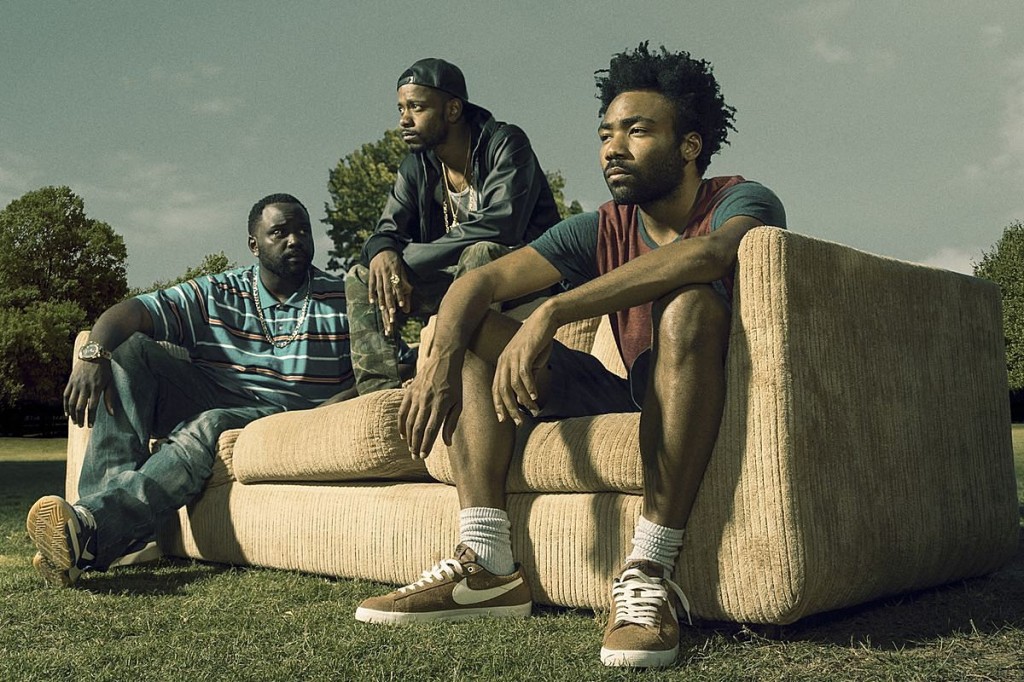 Comedy has led the charge for creativity in TV the last couple of years, and it will advance even farther this far starting with tonight’s premiere of “Atlanta” (FX, 10 and 10:30 p.m.).
Comedy has led the charge for creativity in TV the last couple of years, and it will advance even farther this far starting with tonight’s premiere of “Atlanta” (FX, 10 and 10:30 p.m.).
From Donald Glover, of “Community” fame, who has also had success as the rapper Childish Gambino, “Atlanta” is like nothing much before it. Like “Broad City” it creates a compelling portrait of people really struggling within a specific community; like “Louie,” it combines deep self-examination with broad absurdity. And from both of those shows, it has the courage to walk way out on a limb and try new things.
This comes from having a singular comedic vision, which FX allows Glover to have, as it did Louis C.K., seemingly unfettered creative power. That means parts of “Atlanta” approach art, though he’d never put it that way.
Glover plays Earn, a guy who is not going to make his fortune trying to sign people up for credit cards at the airport. But when he learns a cousin (Brian Tyree Henry) is doing well locally as a rapper, he does what he can to become his manager.
Even becoming a popular rapper ain’t what it’s cut out to be, but it sure seems a lot more interesting than sales. And Glover’s Earn despite his name is broke and has to help support a daughter, is banned from his parents’ house and gets caught into schemes that deplete what little he has in his account.
It reminded me at times of “King of the Hill” just for how well drawn his community of weirdos seems to be, from the stoner philosopher roommate of the cousin (Lakeith Stansfield) to his tough-love dad (Isiah Whitlock Jr. — none other than Sen. Clay Davis from “The Wire”).
There is, however, an accuracy to the locale, to greater Atlanta itself, but any urban setting, sprawling but often bleak. And scenes as in tonight’s second episode, in a jail house, in which a mentally challenged prisoner is abused, are more harrowing and real than played for laughs.
Like the soon-to-come “Insecure” on HBO from Issa Rae, it feels like there are two new, vital shows that reflect contemporary African-American life in a way most black sitcoms never did — simply because they were not allowed to tell their own stories.
“The thesis with the show was kind of to show people how it felt to be black, and you can’t really write that down,” Glover told reporters at the TV Critics Association summer press tour last month. “You kind of have to feel it. So the tonal aspect was really important to me.”
“We talked a lot about tone,” Director Hiro Murai said. “It’s technically comedy, but like Donald is saying, a lot of the stories are about the gray areas. You are not sure if you are supposed to laugh.”
Citing the jail scene, he said, “I think you go into it thinking it can be funny, and then you feel bad for feeling that way afterwards. So, you know, I think we are trying to create a tone in a world where those things can happen where you are allowed to laugh at the hard jokes and the characters, but you can also feel real stakes. I think, early on, we talked about how important it was that we can make hard jokes, but also, you know, people can get shot and die and that you actually care about these characters. So I think every choice we made aesthetically is there to support both of those things coexisting.”
Glover admits “Atlanta” is trying to take another step.
“Like, I feel like we’ve seen the kind of Richard Pryor/Gene Wilder, like, ‘Black people do this; white people do this,’ for a long time. And I was, like, why that was interesting in the first place is because people didn’t really know.”
Now it’s different, he says. “It’s very easy for white people now to know, because there’s Vine and there’s things where it’s, like, yeah, the Nae Nae came out, and then your grandma is doing it two days later. So it’s like: what do they not know?”
Glover says in putting together “Atlanta” he wants scenes that aren’t, so to speak, so black and white. “I think I wanted them to be more like questions, I guess.”